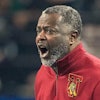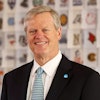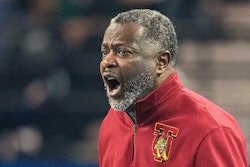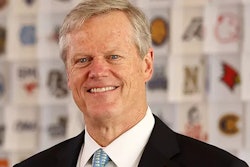Pell Grant Debate Sours House Budget Talks
WASHINGTON — Debate on a fiscal 2001 education funding bill has taken an increasingly bitter turn as House leaders recently rejected Democratic attempts to add more money for Pell grants, among other programs for needy students.
Republican leaders labeled out of order an amendment that would have increased the maximum Pell grant to $3,800 next year. The House spending bill contains a $200 increase, to $3,500 next year, but many Democrats and education groups have labeled that increase inadequate given the current budget surplus.
Many liberals also have criticized the bill for failing to fund White House initiatives on K-12 education reform, hiring of new teachers and funding for safe-school programs.
“The Republican leadership has once again succeeded in bringing to the floor a labor, health and education appropriations bill designed to please only themselves and their right-wing friends,” says Rep. William Clay, a senior Congressional Black Caucus member and top Democrat on the House Committee on Education and the Workforce.
A $1 billion job training initiative from Rep. Jesse Jackson Jr., D-Ill., also failed to make it to a vote.
One bright spot in the GOP bill is funding for minority-serving institutions, including historically Black colleges. HBCUs would receive $185 million, an increase of $36 million over current funding and $16 million more than President Clinton’s budget request last winter. HBCU graduate institutions would receive $45 million next year under the House bill, a $14 million increase from current funding and $5 million above the president’s request.
Hispanic-serving institutions also could reap significant gains. The House has recommended $68.5 million in support for Hispanic colleges under Title V of the Higher Education Act. The Senate has proposed $62.5 million, the same as the president’s request, for a program funded at
$42.3 million this fiscal year.
Still, the growing partisan debate makes it unlikely that Congress can clear an education-spending bill without some concessions to Democrats. President Clinton already has threatened to veto the House bill if it reaches his desk. The stalemate could last into late summer.
Officials Warn That Interest Rates Will Affect Student Loans
WASHINGTON — The recent rise in interest rates nationwide soon may hit needy students in the pocketbook, U.S. Department of Education officials warn as they also plan at least a short-term solution to the problem.
Interest rate hikes by the Federal Reserve likely will soon affect student loans, which are due for their annual interest rate adjustment. As a result, interest on popular loan programs will increase to as high as 9 percent. Current rates are in the range of 6 percent to 8 percent, department officials say.
The change in policy will allow students to “lock in” their interest rate at the time they file for a loan or a loan consolidation. Usually, interest rates are calculated at the time lenders finish processing a loan application. As a result, someone who refinances a $20,000 loan before July 1 could save about $1,500 over 10 years because of the new policy, department officials say.
For more information, visit the department’s Web site at https://www.ed.gov/.
Kentucky Coach Smith Urges Gambling Ban
WASHINGTON — One of the nation’s most prominent Black coaches is urging Congress to approve legislation to ban gambling on college sports.
University of Kentucky basketball coach Tubby Smith visited Capitol Hill last month to endorse legislation that would prohibit gambling on college sports in the one state, Nevada, where such a practice is legal. The bill is due to come before the full Senate shortly, while a House panel conducted a public hearing on the plan, receiving testimony from Smith and others.
Smith and Lou Holtz, football coach at the University of South Carolina, and former Notre Dame coach, note that college sports teams increasingly are judged based on whether they cover point spreads in games.
Smith told the House panel he is particularly concerned about nonathlete students who nonetheless attempt to influence college athletes. “In nearly every case where gambling has created scandal in college athletics, a fellow student has influenced a student-athlete to change the game,” he says.
Holtz says Nevada should get no special permission on the college gambling issue. “If it’s illegal to bet on college athletics in 49 states, why isn’t it in the 50th state as well?” he asked.
But Nevada lawmakers criticize the plan, saying it would single them out for punitive action while doing nothing about underground gambling that is tolerated on some college and university campuses.
Instead of an outright ban, Nevada lawmakers such as Democratic Rep. Shelley Berkley have alternative plans that would toughen penalties on illegal gambling or impose sanctions on those who fix games.
Berkley’s bill also would create a panel to investigate illegal sports betting nationwide.














